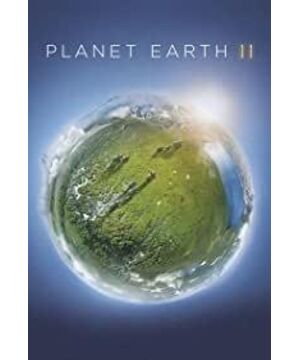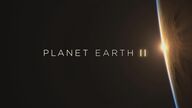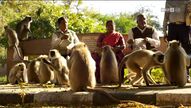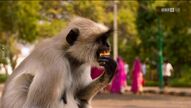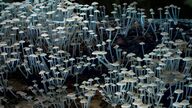About 13.5 billion years ago, after the so-called "Big Bang", the matter, energy, time and space of the universe became what it is now. These fundamental features of the universe become "physics."
After about 300,000 years, matter and energy begin to form complex structures, called "atoms," which further make up "molecules." As for the story of these atoms and molecules and how they interact, it becomes "chemistry."
Some 3.8 billion years ago, on the planet called Earth, some molecules combined to form a particularly large and delicate structure called an "organism." The story of the organism becomes "biology".
- "A Brief History of Humanity"
"Earth Pulse" is such a documentary, it always reveals a truth: life is complex in form and simple in purpose. It seems that the purpose of life revolves around only two words, "survival" and "reproduction". So you can see all kinds of behaviors of various creatures for these two purposes. You can see the chinstrap penguins on Zavodovsky Island, jumping from the rocks to the sea, filling their stomachs and feeding them to the little penguins; The local calf is born, and then every morning, at the risk of being hunted by predators, it travels back and forth 200 kilometers to fetch water; you can also see the bison shoveling snow with its thick neck muscles in the snow-covered meadows, just for the sake of Eat a bite of dead grass buried deep beneath it.
"The world is bustling, all for the benefit; the world is bustling, all for the benefit." As long as it is life, it has to try its best to obtain material and energy. Only in this way can life continue. This is a natural law and cannot be changed.
But Earth Pulse is yet another documentary that makes you unknowingly in awe of nature. In the desert, the stork climbed the 300-meter sand dune that is twice as high as that of Mount Everest, which is twice as high as that of a human. The awe of the surging river can no longer be restrained, how can nature be so great and magical! It occurred to me that if humans were to design a machine the size of a fingernail, it could climb 300 meters of sand dunes, get moisture from the air in extremely arid deserts, and in addition to foraging and energy How can humans reproduce? However, nature not only completed this design task brilliantly, it also designed the Namibian chameleon to eat this beetle, which means that nature has even designed the biological chain. From this point of view, Academician Qu Zhonghe's classic sentence "I am sure that the simplest cell is also more sophisticated than the intelligent computer designed by human beings so far" is not bad.
In the face of nature, human beings should be in awe, but is there nothing special about human beings who live with humans on the earth? The answer is yes. The simplest and most direct difference is that human beings can make and use tools, so human beings can create an ecosystem called "city" that has never appeared in history. With their lives in danger just to find a little food, human beings have more free time for control and entertainment, but human beings also pay a huge price for it. Humans cannot experience that kind of colorful life, and daily life is dull and boring; the huge pressure of life makes people feel extremely nervous, and more and more people cannot feel happiness. But there is no doubt that human beings are progressing, and human beings have traded a more stable and secure way of life by sacrificing part of their subjective well-being.
At the end of the last episode of "City", the garden city of Singapore is mentioned, which can be regarded as a model of harmonious coexistence between man and nature, but will it be what the city of the future will look like? maybe. Compared with the technical difficulty, it seems to be more difficult to improve people's understanding of the relationship between man and nature and to bring about some mental changes. We can see that "Earth Pulse" is working hard to promote this change. .
View more about Planet Earth II reviews


